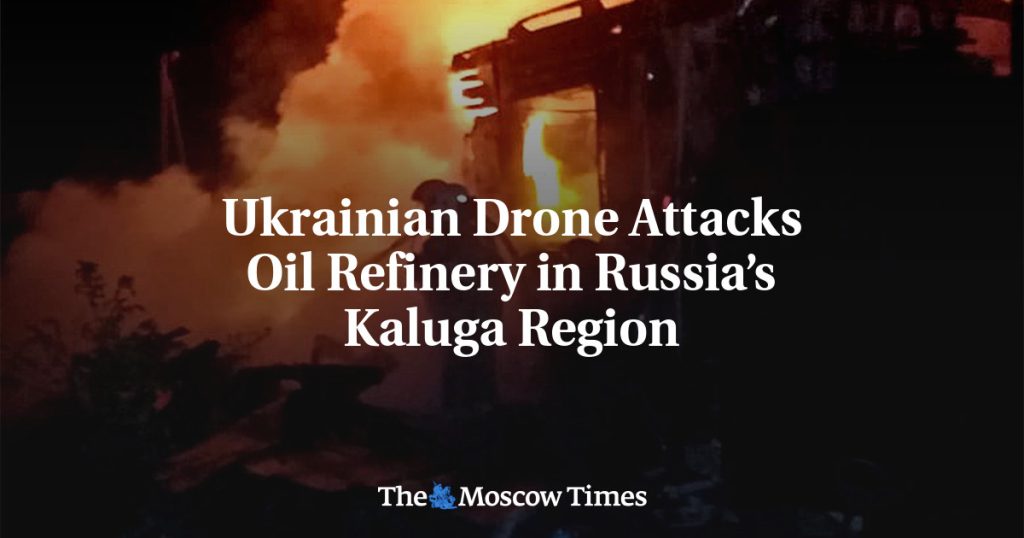In a recent series of attacks on Russian energy infrastructure, a Ukrainian drone struck an oil refinery in the Kaluga region, south of Moscow. This incident was one of several drone strikes reported in at least five Russian regions between Thursday night and Friday morning. The Governor of the Kaluga region, Vladislav Shapsha, confirmed the incident on Telegram, stating that a fire had occurred at the refinery but was extinguished without any casualties. Reports from Russia’s state-run news agency indicated that several tankers caught fire at the refinery as a result of the drone strike.
This attack is not the first of its kind, as Ukrainian drones previously targeted the same Kaluga refinery on March 15, coinciding with Russia’s presidential election. U.S. officials have expressed concerns that continued attacks on Russian oil refineries by Ukraine may have a significant impact on the global energy market. As a result of these drone strikes, there has been a decline in gasoline production in Russia. Despite these events, Russia’s Defense Ministry did not acknowledge the drone strike on the Kaluga refinery but reported intercepting Ukrainian drones in other regions such as Bryansk, Moscow, and Belgorod overnight and into Friday.
The escalation of drone attacks in various Russian regions has caused significant damage, with reports of several houses set on fire in the Kursk region and interceptions of drones in areas such as Podolsk near Moscow. Moscow Mayor Sergei Sobyanin mentioned one interception over Podolsk as the drone was reportedly heading towards the Russian capital. These incidents suggest a growing trend of conflict and tension between Ukraine and Russia, with drones being used as a tool for targeted attacks on energy infrastructure. The impact of these attacks on Russia’s energy production and distribution raises concerns about potential disruptions in the global energy market.
The use of drones in military operations has become increasingly common, with Ukraine utilizing this technology to target key facilities in Russia. The strategic nature of these attacks, particularly on oil refineries, highlights the vulnerability of critical infrastructure to aerial assaults. The resulting fires and damage at the Kaluga refinery underscore the potential risks associated with such attacks, including environmental concerns and threats to energy security. The need for heightened security measures to protect vital facilities from drone strikes is evident in light of these recent incidents.
The geopolitical implications of these drone attacks extend beyond the direct damage caused to individual facilities. The potential impact on global energy markets, as warned by U.S. officials, raises questions about the long-term consequences of continued hostilities between Ukraine and Russia. The interplay between military actions, energy security, and international relations underscores the complex challenges faced by both countries and the broader international community. Efforts to de-escalate tensions and find peaceful resolutions to ongoing conflicts are crucial in preventing further destabilization and ensuring the stability of energy supplies worldwide.
In conclusion, the recent drone strike on the Kaluga oil refinery in Russia adds to a series of attacks on critical energy infrastructure in the region. These incidents highlight the growing use of drones in military operations and the increasing risks associated with aerial assaults on key facilities. The consequences of such attacks, including disruptions to energy production and potential impacts on global markets, underscore the need for enhanced security measures and diplomatic efforts to address underlying conflicts. The intersection of security, energy, and geopolitics in this context presents complex challenges that require careful consideration and coordinated responses to mitigate risks and promote stability in the region and beyond.


